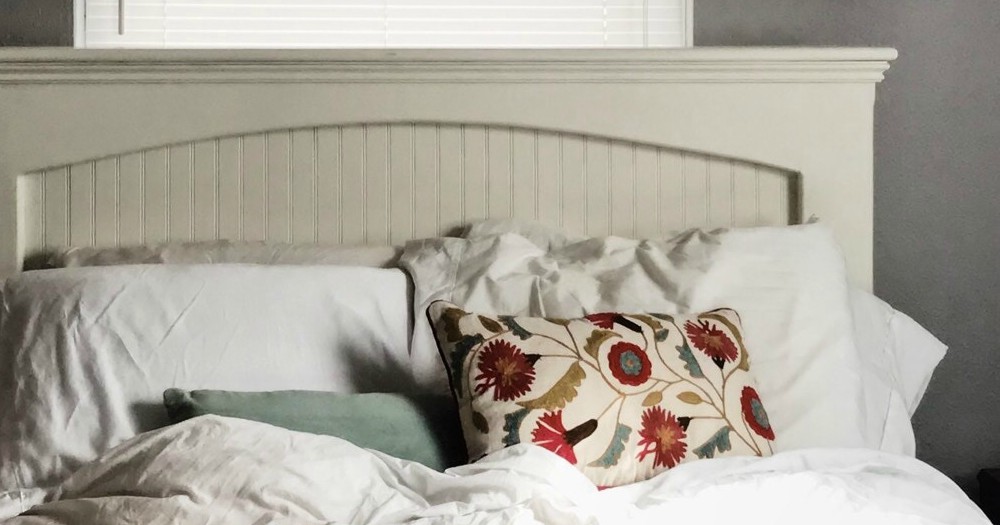When I say the word “health”, what comes to mind for you? Is it exercise, or diet, or doctor appointments?
The World Health Organization has defined health as “a state of complete physical, mental, and social well-being and not merely the absence of disease or infirmity.”
I prefer the term well-being to health. I think it’s more encompassing. I think we, as a society, are learning that our complete well being bears more weight on our happiness than being healthy in any one area of our lives, at the risk of ignoring other areas.
We are holistic beings. When one part of our system is out of balance, it throws the rest of our systems out of balance. Let’s take sleep as an example, or more correctly, the lack of sleep.
I know that when I don’t get at least 5 hours of sleep, I will have lower back pains the next day. I also know that I have a shorter fuse on my temper. I take more wrong turns when I’m driving, even when I know where I’m going, and I don’t make decisions very quickly. I also look for more food throughout the day. It’s as if, because I didn’t get enough sleep to fuel my needed energy supply, I’m looking for food to do it. Lack of sleep affects my physical body, and multiple areas of my brain, as well as my appetite. These are the areas that I understand enough to be able to link back to the lack of sleep. What about the areas I’m not educated enough to notice, digestion, healing, breathing, etc.?
Sleep and Weight
The article, Sleep More, Weigh Less on WebMD.com, states that the lack of sleep will also lead to weight gain, due to the unbalancing lack of sleep causes in our brains. According to this article, insufficient sleep impacts our hunger and fullness hormones, including two called ghrelin and leptin.
Ghrelin signals our brain that it’s time to eat. When we’re sleep-deprived, our body makes more ghrelin.
Leptin, on the other hand, cues our brain to put the fork down. When we’re not getting enough sleep, leptin levels plummet, signaling our brain to eat more food.
Then there’s the cortisol spike that comes from too little sleep. This stress hormone signals our body to conserve energy to fuel our waking hours. Translation: You’re more apt to hang on to fat.
This article discusses other problems that lack of sleep causes when it come to eating and weight gain, none of them good. Most of them, I’ve experienced.
How Much Sleep?
In a previous posting, I stated that I wanted to start cleaning up the messes in my life by tackling my extra weight, first. I’m currently 90-100 pounds over my proper weight. I would like to lose this weight slowly, without any crazy diets, or drastic lifestyle changes. That being said, I am all about eating well and making gradual, specific, planned, lifestyle changes. Sleep seems the perfect place to start the gradual changes.
I’ve been planning to get more sleep. In fact, I’ve noticed that while I usually sleep between 7 and 7.5 hours each night, there have been several recent occasions where I’ve slept up to 9 hours. I’m assuming my perfect night’s sleep length will land somewhere between 7 and 9 hours per night. Imagine my surprise when I found out that this is the exact window of time that most healthy adults fall into. Apparently, I’m not so special after all. I think my mother may have told me that years ago, I just refused to listen.
In my case, I believed it was my schedule that was causing my missing hours of sleep. I’m assuming that, because I’m not special, this is also the case for most people who are sleep deprived.
I decided to really tear my schedule apart to determine if there is any place that I could adjust it to gain the extra needed hours, especially since I’ve discovered finding this extra sleep time will make losing weight easier, or at least it will help me to curb gaining any more weight.
The first place I looked was my TV time. Surprise, surprise, somehow, I’d gone from watching one hour of TV a day to 3 hours of TV a day. Actually, it’s 2 hours of TV with one hour of sleeping on the couch, in front of the TV. TV is a sneaky time stealer. It’s a bad habit that somehow had taken hold over the last few months, I swear.
So the first minor change I made was to turn off the TV after 2 hours and go to bed, before I fell asleep on the couch. I didn’t really gained any sleep time with this change, but l hopefully gained quality of sleep time.
When this new habit is fully established I plan to move on to lessening my TV time to an hour. I enjoy my TV time before bed, because it helps me to switch off the day and shift into sleep mode. Eventually, I may find something else to replace the TV, but I’m not focusing on doing so, just yet.
I’ve also found that a white noise machine seems to help me sleep more soundly. When I use it, I only wake up 1-2 times per night, to go to the bathroom, instead to the 3-4 that I was experiencing. I thought it was just part of getting older. It’s possible that night noises were waking me up, and I just thought I woke up to use the potty.
Schedule Your Sleep
For years, I’ve heard that going to bed each night and waking each morning at the same time, including weekends, will also help to get a better nights sleep. So I’m going to wake up each morning at the same time. Since I don’t know just how many hours of sleep I do need, I’m going to let my body tell me what time is the right time to go to bed, such as when I’m falling asleep on the couch. This way, over time, I’ll be able to back into discovering how much sleep I need each night.
The WebMD article had a few other basic ideas for a better night’s sleep:
• Shut down your computer, cell phone, and TV at least an hour before you hit the sack.
• Save your bedroom for sleep and sex. Think relaxation and release, rather than work or entertainment. (I don’t know, I kind of put sex in the entertainment realm, myself.)
• Create a bedtime ritual. It’s not the time to tackle big issues. Instead, take a warm bath, or read.
• Watch what and when you eat. Avoid eating heavy meals and alcohol close to bedtime, which may cause heartburn and make it hard to fall asleep. And steer clear of soda, tea, coffee, and chocolate after 2 p.m. Caffeine can stay in your system for 5 to 6 hours.
• Turn out the lights. Darkness cues your body to release the natural sleep hormone melatonin, while light suppresses it.
All good ideas, and with the exception of the bedtime ritual, I already employ all of these tips and have found them all to be beneficial to a better nights sleep.
Has anyone else found that their sleep habits are related to their weight issues? If so, what have you done to address them? I would love to hear from you. WebMD, doesn’t have all the answers. I want to know how real people deal with these issues.




